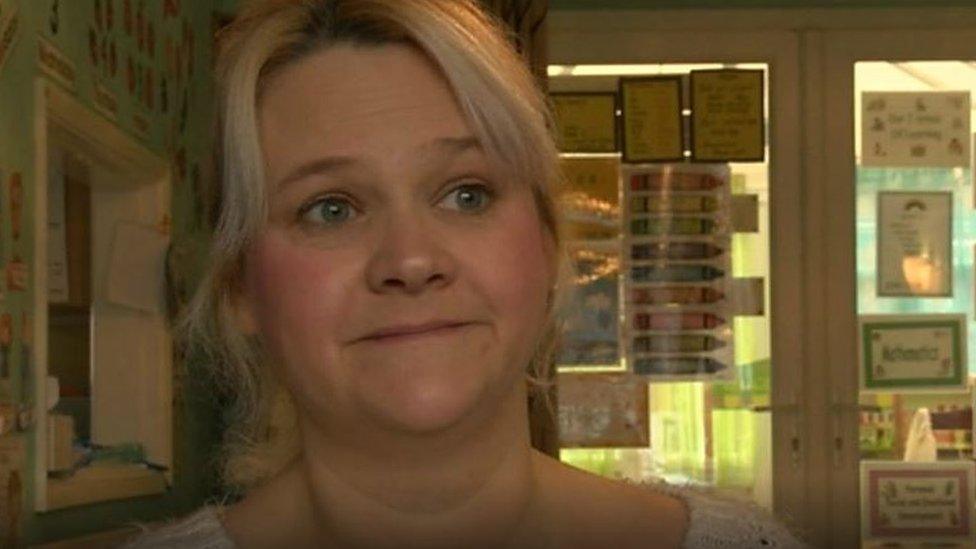Surrogate mother and MP: UK surrogacy law 'outdated and inadequate'
- Published

Sarah Jones - a parent, childminder, four-time surrogate and chair of Surrogate UK - said UK surrogacy law is "unacceptable"
A woman who has been a surrogate mother four times says "urgent changes" are needed to surrogacy law.
Sarah Jones from Epworth, Lincolnshire, backed by MP for Brigg and Goole Andrew Percy, said current laws, set up in the 1980s, are "outdated and inadequate".
Surrogacy is when a woman becomes pregnant with the intention of giving the child to its parents after birth.
However, UK law says the surrogate stays legally responsible for the child until parental rights are transferred.
More stories from East Yorkshire and Lincolnshire
Ms Jones, who is chair of Surrogacy UK, and has her own children, said it was "demoralising" for parents not to be recognised from birth.
She also said it was "unacceptable" that they cannot make medical decisions for their child until parental rights are transferred from the surrogate - a process that can take up to two years.
"It doesn't meet the needs of the surrogate, the needs of the parent and certainly not the needs of children born through surrogacy," she said.

What is surrogacy?
Surrogacy is where a woman becomes pregnant with the intention of handing the child over to another "parent" after giving birth - usually a couple or parent who cannot conceive themselves.
In traditional surrogacy, the surrogate mother's egg is used, making her the genetic mother.
In gestational surrogacy, the egg from the intended mother or donor is fertilised through IVF and placed inside the surrogate's womb.
Some countries, including the UK, allow surrogacy if the surrogate is not paid. It is banned in other countries, including France and Germany.
People may go abroad, often to India or Thailand, if their country does not allow surrogacy or if they cannot find a surrogate.
Why do campaigners say the rules are 'outdated'?
Rules date back to the 1980s when surrogacy was introduced.
The surrogate remains legally responsible for the child until parental rights are transferred to the "parents" in family court, which can take up to two years.
Some people go abroad because of uncertainty around finding a UK surrogate - but this can be problematic for the surrogate mother in poorer countries.
Source: BBC and Surrogacy UK

Mr Percy, who has backed the comments said "inadequate" laws do not reflect modern British families.
"The world has moved on a whole generation," he said.
"People are creating families in different ways, through IVF, adoption, gay couples and single people having children.
"What's important is to create families in which a child is brought up in a loving environment."

Andrew Percy, Conservative MP for Brigg and Goole, said current surrogacy laws are "inadequate"
Mr Percy set up an all-party parliamentary group to tackle the issue in December.
During a recent public consultation on law reform, the Law Commission found surrogacy was the issue that came up most and it has been asked by government to review current laws.
Commissioner, Professor Nick Hopkins said: "The law needs to be brought up to date and improved, surrogacy is a very complex issue with no quick fix, and it needs considering properly."
- Published16 January 2018

- Published6 August 2014
